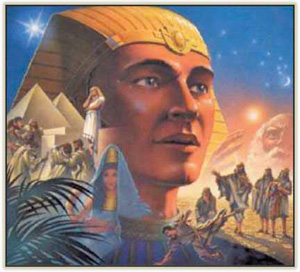
Just last week I brought my car in for an oil change. I asked the gentleman helping me how long it would take for my car to be serviced. He told me that I should be on my way in an hour, and directed me to the waiting room. I walked into a room at full capacity but, slowly, each chair emptied as names were called. As time passed I waited for my own name to be called. Finally, after two and a half hours, I was reunited with my car and could be on my way. Sitting in that waiting room, as the minutes ticked by, I began to feel endlessly frustrated. Reflecting on my altered day I thought to myself, “Wow, what an exercise in patience that was!”
We live in an on-demand society. Waiting patiently is not something we particularly excel at. We expect results in nearly every area of life–instantaneously. To wait, in the world we live in, is tantamount to torture.
This week’s parsha, Parshat Miketz, always falls out on Shabbat Chanukah–which begs us to understand the link between the message of Chanukah and the life of Yosef in Egypt. When Pharaoh first meets Yosef, Pharaoh informs him that he has built quite a fantastic reputation for himself. Often in life most people look for opportunities to sing their own praises and build up their r?sum?s. Pharaoh expects no less from Yosef, and assumed that he would respond in the affirmative, accepting this flattering introduction. Instead, Yosef surprises Pharaoh by using the word biladay, translated as “that is beyond me.” Yosef insists that it is not he, but rather Hashem, that will bring peace of mind to Pharaoh in interpreting his dreams. Rashi explains that Yosef was telling Pharaoh that it wasn’t his own talent that gave him the insights into dreams; rather, it was the Divine Influence that emanated from his mouth. Yosef saw himself as a vehicle through which the message of Hashem could be brought into this world. On a personal level, Yosef had much more to gain by saying that it was, in fact, his own power that caused him to interpret dreams. Yet sanctifying Hashem’s name was the priority in Yosef’s mind. Furthermore, after Pharaoh unburdens himself and describes his dreams in great detail, Yosef responds by telling him that it is Hashem who is revealing His plan to Pharaoh. Once again, Yosef does not take the credit for himself, but instead introduces Hashem into the conversation.
What a dramatic lesson for us in our lives: The importance of looking at ourselves as vehicles through which we might transmit Hashem’s message, and becoming a symbol of light unto the nations as Hashem had charged Avraham, and putting the honor of God above our own. Living in a secular society, we often get caught up with the “business of life” and let our relationship with Hashem take a seat in our own waiting rooms. We expect our spiritual engines to be oiled up and working at maximum efficiency at the very instant that challenges arise; when people we care about are sick, when we find ourselves stressed financially, or even when we are simply just struggling emotionally. Yosef Hatzadik took his personal relationship with Hashem everywhere he went. His spirituality and his relationship with Hashem was the essence of his growth throughout life, and was not put on the backburner, even at this most enticing juncture. He didn’t ask God to wait; he made Him his number one priority. The relationship between Hashem and Yosef ran like a well-oiled machine indeed.
The message of Chanukah is the victory of Torah, of spirituality, over a society entrenched in the mud of hedonism and materialism. The most notable miracle of Chanukah is arguably that of the flask of oil; a mere remnant that stood out among the others which had become defiled. It remained steadfast and strong as it burned on well past its natural expectancy. As Orthodox Jews in contemporary society we too must stand out as the pure oil in the face of much grime and emptiness that surrounds us. It is time for an oil change. Let us not test His patience as He waits for us to call His name. As we watch our candles burn brightly this Chanukah, let us take Hashem out of our waiting rooms and reintroduce spirituality into our daily lives. By recommitting ourselves to Torah, Mitzvot, and personal growth, we too can burn brightly in the eyes of Hashem and the world around us.
Eliezer Zwickler is Rabbi of Congregation AABJ&D in West Orange, New Jersey. Rabbi Zwickler is also an individual and marital psychotherapist licensed as an LCSW by the State of New Jersey. Rabbi Zwickler can be reached at [email protected]
By Rabbi Eliezer Zwickler










